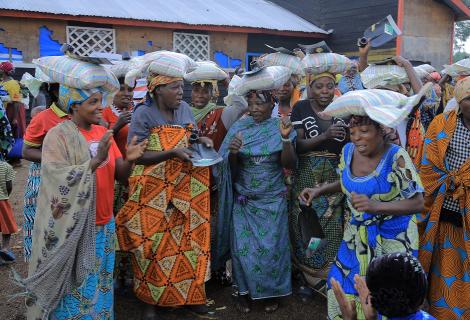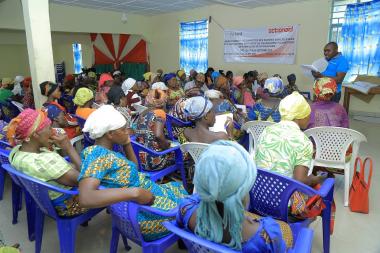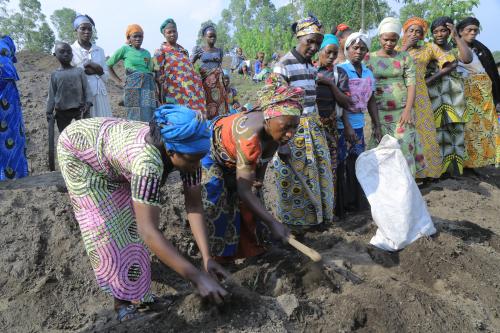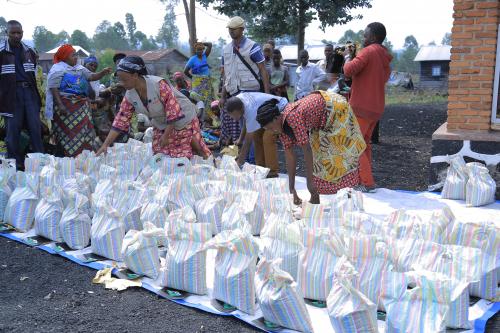Empowerment of women through training on new agriculture techniques, breeding and distribution kits.

In Nyiragongo women were facing big challenges as farmers including malnutrition, lack of rain, fertilizers and lack of resources for good practice in agriculture and breeding but now the community will no longer face these problems ; Actionaid with the support of Packard brought new techniques of farming to the women farmers.
Nyiragong territory is located at the bottom of Nyiragongo volcano and around the Virunga National Park. 80% of the population living this area live on farming and livestock however big dealers occupy a large area of land at the expense of small farmers who turn to Virunga national park for a living creating a conflict between the population and Virunga National Park Managers the above environmental disparities have existed for several .
However, civil society actors and especially women's organizations in Nyiragongo reported that women face violence around the park. As they rely on the park for livelihood (firewood, mushrooms, vegetables, honeys), they have to travel a long distance to fetch water. Pygmy women in Mudja, Rusayo, Katale and Hehu are reported to be the most affected groups.

To promote women’s rights through empowerment and fight against economic and social inequality, ActionAid has set up farming and livestock activities for 800 beneficiaries including organizing a training of 200 women leaders to ensure that activities will be carried out in accordance with farming and livestock good practice.
Actionaid’s inclusion of pygmy women, women with disabilities, pregnant women and the entire village participation in the project was highly appreciated.
The territory counts seven villages (Kibati, Munigi, Muja, Rusayo, Buvira, Kibumba and Buhumba) around Virunga National Park, Actionaid organized the distribution of seeds , farm implements and livestock to help vulnerable women build resilience in food security to the effects of climate change; increase access to and control over land; increase crop productivity; Improve food storage and reduce post-harvest losses by promoting environmental protection through sound management of natural resources;

